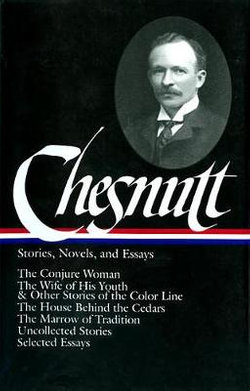Rejecting his era's genteel hypocrisy about miscegenation, lynching, and "passing,"
Charles W. Chesnutt broke new ground in American literature with his innovative explorations of racial identity and use of African-American speech and folklore. Chesnutt exposed the deformed logic of the Jim Crow system-creating, in the process, the modern African-American novel. Here is the best of Chesnutt's fiction and nonfiction in the largest and most comprehensive edition ever published, featuring a newly researched chronology of the writer's life.
The Conjure Woman (1899) introduced Chesnutt to the public as a writer of "conjure" tales, stories that explore black folklore and supernaturalism. That same year, he published
The Wife of His Youth, and
Other Stories of the Color Line, stories set in Chesnutt's native North Carolina that dramatize the legacies of slavery and Reconstruction at the turn of the century. His first novel,
The House Behind the Cedars (1900), is a study of racial passing.
The Marrow of Tradition (1901), Chesnutt's masterpiece, is a powerful and bitter novel about the harsh reassertion of white dominance in a southern town at the end of the Reconstruction era.
Nine uncollected short stories round out the volume's fiction, including conjure tales omitted from
The Conjure Woman and two stories that are unavailable in any other edition. Eight essays highlight his prescient views on the paradoxes of race relations in America and the definition of race itself.
LIBRARY OF AMERICA is an independent nonprofit cultural organization founded in 1979 to preserve our nation's literary heritage by publishing, and keeping permanently in print, America's best and most significant writing. The Library of America series includes more than 300 volumes to date, authoritative editions that average 1,000 pages in length, feature cloth covers, sewn bindings, and ribbon markers, and are printed on premium acid-free paper that will last for centuries.







Share This Book: